 https://necins.com/wp-content/uploads/2024/03/Lawyer-pointing-to-document-and-discussing-legal-text.jpg
1250
2000
AbstraktMarketing
/wp-content/uploads/2022/12/logo-NEC-blue.png
AbstraktMarketing2024-03-29 08:22:572024-04-25 15:27:31What’s the Point of General Liability Insurance for Small Businesses?
https://necins.com/wp-content/uploads/2024/03/Lawyer-pointing-to-document-and-discussing-legal-text.jpg
1250
2000
AbstraktMarketing
/wp-content/uploads/2022/12/logo-NEC-blue.png
AbstraktMarketing2024-03-29 08:22:572024-04-25 15:27:31What’s the Point of General Liability Insurance for Small Businesses?What Is the Purpose of Key Person Insurance?
Key person insurance (also known as key man insurance) is a type of life insurance policy that can provide financial security to businesses should they lose a key employee. This type of insurance can be vital for the survival of any business, but what exactly is key person insurance, and who benefits from it the most?
In this blog, you’ll learn about the purpose of key person insurance, what makes a person “key,” how much coverage businesses need, what policies are available, and more.
What Is Key Person Insurance?
Key person insurance is designed to help businesses replace lost income if a key employee dies, becomes disabled, or suffers from an illness. It’s a way for companies to get some financial protection against losing a key employee. The policy also helps businesses cover the costs of recruiting and training a replacement for the deceased or incapacitated employee.
The policy pays out a lump sum benefit when a key employee can no longer work for the business. This money can pay for any losses incurred by the company due to their absence. This may include lost profits, sales, or production. It can also cover additional expenses when another employee has to step into the role of the deceased or incapacitated worker.
Why Do Businesses Need Key Person Insurance Coverage?
Key person insurance helps employers by serving as a protective measure when an employee leaves a business or cannot work. Insurance for key persons is typically used by companies that rely on the specialized skills, knowledge, or contacts of one or more of their most important employees. These employees are often called “key personnel” and may include a business’s CEO, the head of its sales department, or a product development engineer.
Because key personnel often play a vital role in the success of a business, employers need to have some means of mitigating the financial repercussions of losing one of these critical employees. While it would be impossible to replace all key personnel, insurance can be used to help replace some percentage of them over time.
How Much Key Person Insurance Do You Need?
The amount of key person insurance a business needs can vary by industry. Some businesses have many qualified individuals who could fill in for a lost key person, while other businesses may rely heavily on a few key personnel. For example, a start-up may require key person insurance because its core personnel plays a vital role in developing new products and services. A retail store, however, may not need key person insurance because the daily operations would continue more or less as usual even if its owner suddenly dies.
In most cases, businesses should have enough key person insurance to cover the salary and benefits of any lost key personnel for at least one year. The one-year time frame gives the business time to find replacements without suffering severe financial losses. However, losing a key person can have devastating long-term effects on a business, so it’s crucial to ensure enough insurance to cover all critical personnel.
Key person insurance policies are an excellent way to ensure your small business stays afloat if the business owner or other core figures fall ill or pass away. NEC Insurance helps you find coverage that empowers you to navigate the costs to replace essential team members and prevent you from losing momentum toward your objectives.
What Should Key Person Insurance Cover?
Key person insurance should cover the costs associated with hiring and training a replacement for the key employee and any legal expenses related to the dispute. Key person insurance also may cover additional expenses such as relocation costs and benefits for surviving family members if needed.
The aftermath of a sudden death in the company can be turbulent. Millions of dollars can be lost due to unexpected employee turnover. You may experience a significant loss of productivity while information is transferred from one employee to another. If your employees are responsible for drafting contracts, customer service, or marketing, a key person policy may be needed to keep these functions running effectively.
What Key Person Life Insurance Policies Are Available?
Key person insurance is typically offered as a life insurance policy. Companies may choose to purchase either term or permanent life insurance policies depending on their specific needs and budget. Term policies are typically cheaper but only cover the insured for a particular period. Permanent policies will cover the insured for life but may be more expensive.
Here’s a closer look at what insurance companies have to offer:
Term Life Insurance
Term life insurance policies are usually the most affordable way to protect a company’s key person. A term life insurance policy provides coverage for a specific period of time, such as 10 or 20 years. During this period, the key person is covered in the event of their death or inability to continue working for the company due to disability. The cost of this type of policy is based on several factors, such as the key person’s age and health status and how much coverage is desired (i.e., death benefit versus total coverage).
Whole Life Insurance
Whole life insurance policies are designed to provide death benefits and living benefits. Unlike term life insurance, whole life insurance policies remain in force for the insured’s entire lifetime. Whole-life policies can provide financial security for key personnel but can also be used as an investment tool or a way to pass on wealth through inheritance.
Universal Life Insurance
Whole life insurance policies are designed to provide death benefits and living benefits. Unlike term life insurance, whole life insurance policies remain in force for the insured’s entire lifetime. Whole-life policies can provide financial security for key personnel but can also be used as an investment tool or a way to pass on wealth through inheritance.
Whole Life Insurance
Whole life insurance policies are designed to provide death benefits and living benefits. Unlike term life insurance, whole life insurance policies remain in force for the insured’s entire lifetime. Whole-life policies can provide financial security for key personnel but can also be used as an investment tool or a way to pass on wealth through inheritance.
What You Should Look for When Researching Motorcycle Insurance Costs
Universal life insurance policies are incredibly similar to whole-life policies. The main difference is that universal life policies have the added benefit of adjustable premiums and coverage. This allows the policyholder to adjust the premium and the coverage amount depending on their changing needs. It’s a hybrid policy that lets you lock in premium payments for some time, then allow them to fluctuate afterward.
Universal life policies also provide death and living benefits, much like whole-life policies. The insured person can track their cash flow throughout the years, allowing them to revise their premiums to fit their current financial objectives.

Define Your Key Person Life Insurance Plan With NEC
NEC Insurance is a seasoned insurance agency that can give you access to excellent insurance coverage. We’re prepared to work with your company to understand your needs and build a key person life insurance strategy that ensures your continued success when a crucial team member dies or becomes disabled.
We apply over 45 years of experience to highlight a path toward the business insurance coverage you deserve. Our policies are affordable and align with your core objectives. Ready to find coverage that protects you against the unpredictable? Reach out today.
Related Postings
 https://necins.com/wp-content/uploads/2024/03/Lawyer-pointing-to-document-and-discussing-legal-text.jpg
1250
2000
AbstraktMarketing
/wp-content/uploads/2022/12/logo-NEC-blue.png
AbstraktMarketing2024-03-29 08:22:572024-04-25 15:27:31What’s the Point of General Liability Insurance for Small Businesses?
https://necins.com/wp-content/uploads/2024/03/Lawyer-pointing-to-document-and-discussing-legal-text.jpg
1250
2000
AbstraktMarketing
/wp-content/uploads/2022/12/logo-NEC-blue.png
AbstraktMarketing2024-03-29 08:22:572024-04-25 15:27:31What’s the Point of General Liability Insurance for Small Businesses? https://necins.com/wp-content/uploads/2024/03/Side-view-of-a-semi-truck-on-the-road-in-the-desert.jpg
1250
2000
AbstraktMarketing
/wp-content/uploads/2022/12/logo-NEC-blue.png
AbstraktMarketing2024-03-29 08:05:572024-04-25 15:27:31Do Small Businesses Need Insurance for Commercial Auto Initiatives?
https://necins.com/wp-content/uploads/2024/03/Side-view-of-a-semi-truck-on-the-road-in-the-desert.jpg
1250
2000
AbstraktMarketing
/wp-content/uploads/2022/12/logo-NEC-blue.png
AbstraktMarketing2024-03-29 08:05:572024-04-25 15:27:31Do Small Businesses Need Insurance for Commercial Auto Initiatives? https://necins.com/wp-content/uploads/2024/03/Side-view-of-two-people-in-an-insurance-meeting.jpg
1250
2000
AbstraktMarketing
/wp-content/uploads/2022/12/logo-NEC-blue.png
AbstraktMarketing2024-03-29 07:54:542024-04-25 15:27:32Are General Liability and Workers’ Compensation Insurance the Same?
https://necins.com/wp-content/uploads/2024/03/Side-view-of-two-people-in-an-insurance-meeting.jpg
1250
2000
AbstraktMarketing
/wp-content/uploads/2022/12/logo-NEC-blue.png
AbstraktMarketing2024-03-29 07:54:542024-04-25 15:27:32Are General Liability and Workers’ Compensation Insurance the Same?

About Us
NEC Insurance supports Missourians with high-quality coverage for businesses and individuals. We apply over 45 years of experience to help you navigate the market and deliver the policies you deserve.
